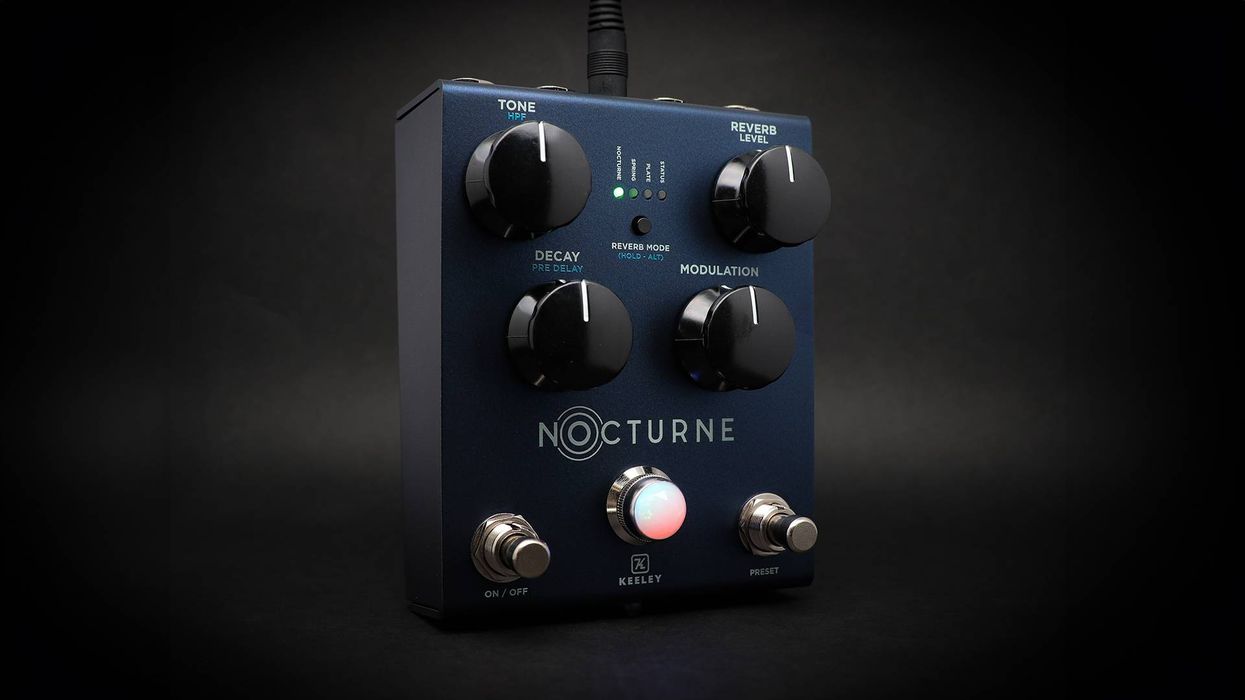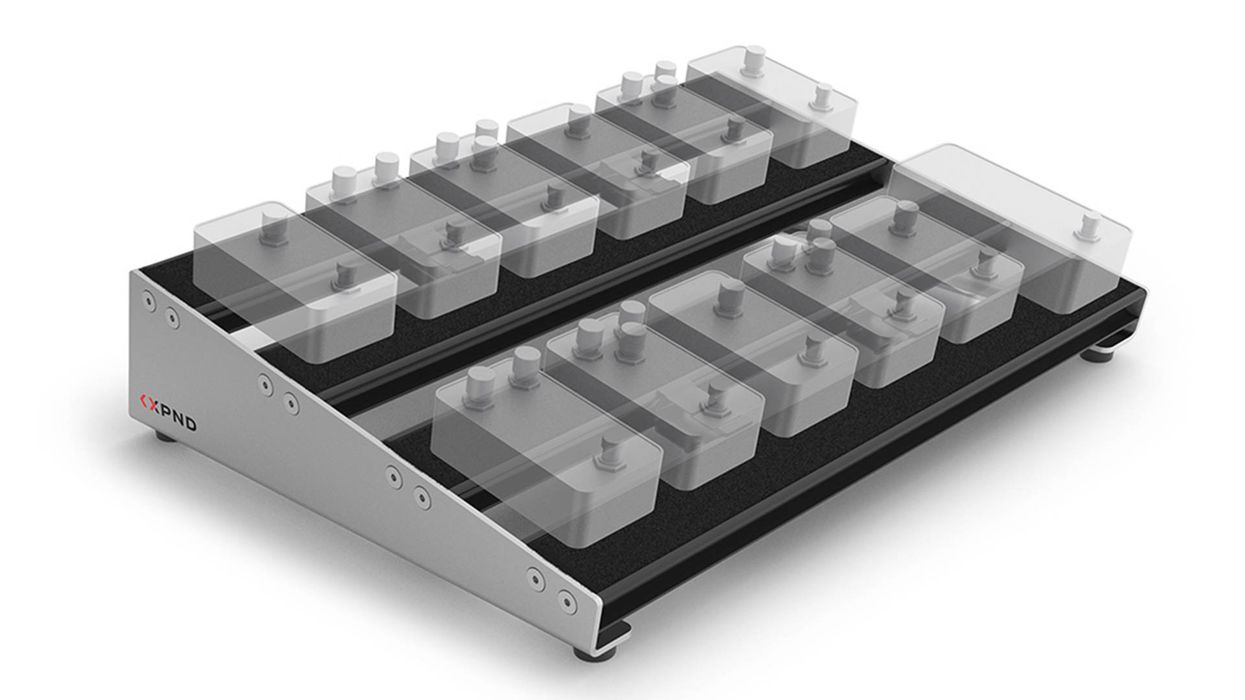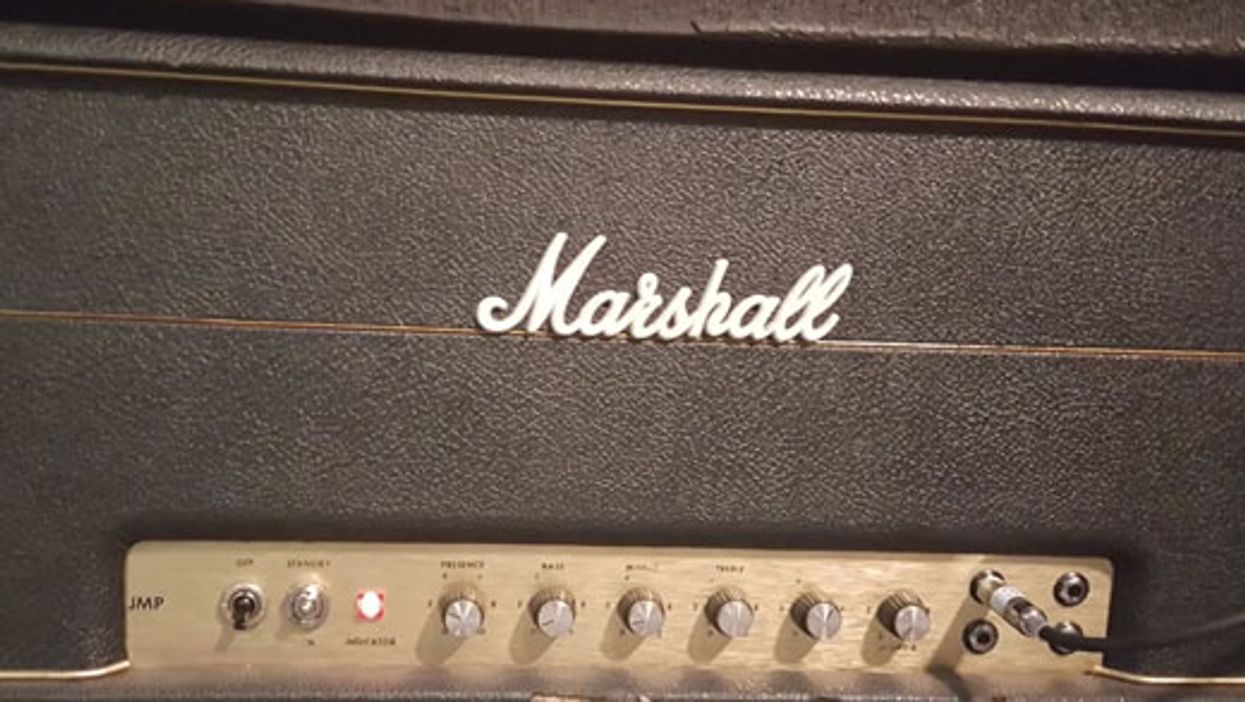
Steve Cook combats a truckload of technical difficulties at a recent outdoor festival: No signal due to a faulty DI, a funky mix from having to re-route his signal, and a malfunctioning mic—all of this on top of an empty stomach.
If you ever took music lessons, you were probably told to play your scales until they were “perfect.” We would labor to get them right, but even if every tone was smooth and even—with every note the exact same length, intensity, and volume—the execution would still not be perfect. It could be excellent, or possibly even world-class, but not perfect. The more worldly instructors know that this is an impossible task, yet they encourage us to aim high. Perfection is the level we should try for in everything we do—from musical performance to how we carry ourselves to how we set up our gear— because the closer to perfect we can get, the less room there is for error.
When you sign that imaginary contract to become a professional musician (now I see why the high school guidance counselor didn’t have a booklet on this occupation), then your goal should always be perfection. You want to nail the audition. You want to play the show perfectly. You want your gear to work flawlessly every time. But since this is real life we are talking about, we all know this really doesn’t happen. There are just too many factors at play that get in the way. It’s one thing to have a perfect show day, but it is another thing all together to know when that day is falling short and how have the mindset to overcome the hurdles keeping you from your goal.
Recently, we had a one-off show that took us from Nashville to Cedar Rapids, Iowa. One-offs are easy—you get on the bus, do a show, and then head right back home. It’s a simple concept, and since we’ve done this hundreds of times, the situations almost run themselves. Almost.
The first problem we had was with the trailer, which caused a four-hour delay and pretty much set the tone for the day. Instead of a soundcheck or even a decent line check, we were shifted from our plan of a comfortable load in and setup to what is known as a “throw and go.” Our setup is not that complex and our crew can usually have us up and running in no time at all. Take away the video walls, “ego ramps,” and the moving lights and smoke, and our setup is essentially not much different from that of a local bar band. At its core, it’s still a guitar or bass going into an amp that’s plugged into the PA.
Until the problems set in. Without the benefit of a soundcheck, we just ran through the signals of each instrument, and of course, there was no signal from the bass rig. There is nothing worse than being the cause for a show delay, especially since I pride myself on having my gear in top working order. But as stressful as it is, that moment of imperfection is not the time to worry—it’s the time to fix it and get it right. For no apparent reason, my preamp DI decided not to work, even though it was 100 percent just two days prior. The minutes seem like hours trying to fix the problem, and since I didn’t have the benefit of a bass tech, I was behind the rig getting things back up and running.
As the show began, other little imperfections popped up. While the bass issue was fixed with re-routing, the gain was now way off from the normal mix and everyone onstage was needing adjustments. It didn’t help that monitor world (the catchy insider name for where the monitor engineer is stationed) was offstage and below our field of vision. And this meant the engineer had to make an adjustment, then move to where we could see him, and then go back to the console. I think he walked a mile in 30-foot increments during that 60-minute set. Then my microphone went out (the gnomes had it in for me that day), the drummer’s snare broke onstage, and the piano was having issues as well. Take into account that we hadn’t eaten or showered, and it suddenly had the makings for “one of those gigs we’ll always talk about.” But in reality, it wasn’t that bad.
The thousands of people who paid to see the show had no clue that we were having problems onstage. The lady in the third row could have cared less if I didn’t have enough keyboards in my in-ear monitors. And even if she had known about it, she was there to see the artist, not a sideman.
With so many problems that could potentially plague a show, it’s a wonder things like this don’t happen more often. But truth be told, they really do happen all the time. And the ability to work through the adversity and make the show happen will separate players in a hurry. Guys that freak out over a bad cable or an ear mix tend to have a shorter shelf life than others who can adjust and still play a perfect show, or a reasonable facsimile thereof.
You’re probably scratching your head as to what to take away from this column. The first point is that we’re not perfect, but setting very high standards and expectations for ourselves will set us apart as musicians, performers, and composers. When you push yourself, your results will get better, and in turn, you become better.
Another thought you should consider: What do you do when perfection isn’t reached? I didn’t have a perfect show, but some said it was one of the best shows they’ve been to. Your gear will not always perform how you want it to, so get to know your equipment and what makes it tick. Luckily, most musicians are tinkerers and can make things work in a pinch. No player is perfect, no bass is perfect (though that ’59 P comes awfully close), and no gig is perfect. Life also isn’t perfect, and we’re thrown challenges every day. Get to know yourself because you could be fighting yourself in your reach for perfection. How do you practice? Are you late for rehearsal? Do you get mad when someone says you’re playing something incorrectly? Think about what happens when you get in the way of you, and how to keep yourself in the best headspace you can.
 Steve Cook is currently
fortifying himself
in the back of a tour
bus, awaiting the low-end
revolution. He can
be reached at info@shinybass.com until the
coast is clear.
Steve Cook is currently
fortifying himself
in the back of a tour
bus, awaiting the low-end
revolution. He can
be reached at info@shinybass.com until the
coast is clear.
















